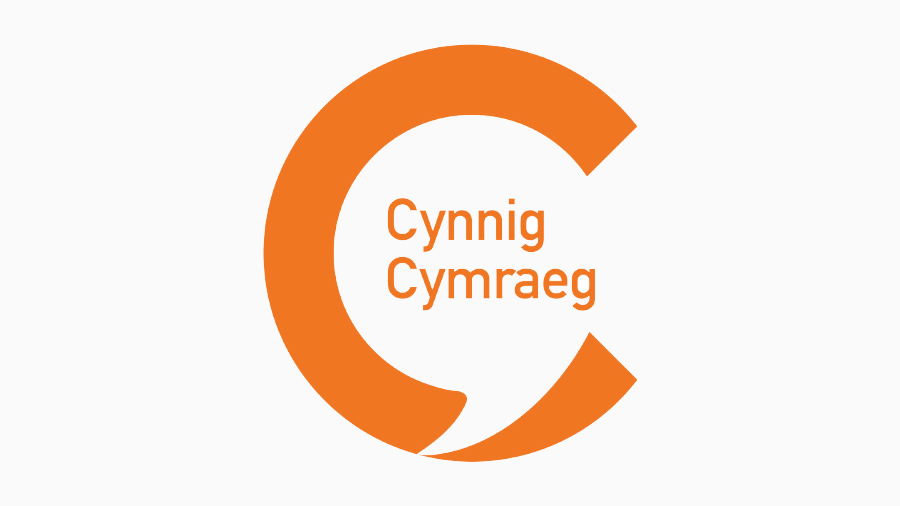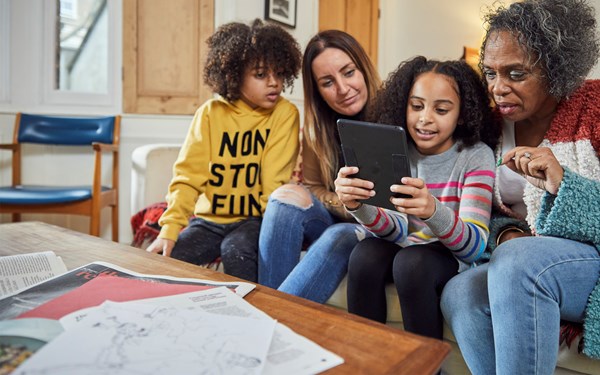Why are we committed to the Welsh language?
- We're committed to playing our part in creating and fostering a society that promotes mutual respect and that truly values individuality and difference.
- We know that fully embracing and valuing the language and cultural differences in Wales will help us to achieve our goals.
- We recognise that Welsh is the preferred language for some of our service users, supporters, volunteers, and staff in Wales.
- Language is more than a means of communication – it’s an essential part of a person’s identity, and people are more able to express their views and needs in their preferred language.
"Together, we can remove real and perceived barriers, valuing everybody who volunteers with, works for, supports or benefits from our work."
Our Equality, Diversity and Inclusion (EDI) vision
Our work with the Welsh Language Commissioner

Our Cynnig Cymraeg/Welsh Language Offer demonstrates our commitment to the Welsh language.
It will help us to achieve greater impact and inspire others to join us in our fight for childhood. Because every childhood is worth fighting for.
We're very proud that we've been working with the Welsh Language Commissioner to develop our Cynnig Cymraeg/Welsh Language Offer and are honoured to have received accreditation.
How we're supporting Welsh speakers
Our key information and campaign materials for audiences in Wales are available in Welsh and English, including our Talk PANTS campaign, our brain-building Look Say Sing Play tips, and our Take 5 parenting resources.
Childline
- Welsh-speaking counsellors can speak to children in Welsh through our Childline service. We advertise when the Welsh language service is available on the Childline website. Childline is promoted bilingually.
- Children and young people can ask to speak to a Welsh-speaking counsellor. If no Welsh-speaking counsellors are available at the time, they can find out when a Welsh-speaking counsellor will be available.
- Children and young people can read our most popular information on the Childline website in Welsh.
NSPCC Helpline
- Emails can be sent in Welsh to [email protected] and we'll respond in Welsh.
- You can find information on how to report abuse in Welsh on our Report child abuse page.
Schools
- Our most popular resources and lesson plans designed for schools are available in Welsh.
- Schools can access our virtual Speak out Stay safe programme and all supporting resources bilingually.
- The Speak out Stay safe SEND/ASN/ALN programme is available in Welsh.
- We welcome calls and correspondence in Welsh to the Wales Hub/National Centre and will arrange for these to be responded to in Welsh. We'll answer calls to the Wales Hub/National Centre bilingually.
- The pre-planned content on our NSPCC Cymru social media accounts is bilingual. You're welcome to contact us in Welsh through our NSPCC Cymru social media channels.
- Information on Our work in Wales page is available in Welsh. Our Welsh resources are easy to find online.
Facebook: NSPCC Cymru/Wales | Facebook
Our popular Protecting children in entertainment training for chaperones e-course is available in Welsh and Welsh language materials are available to those attending our scheduled training courses in Wales.
Our Welsh-speaking staff are essential to our ability to provide Welsh language services – look for the Iaith Gwaith email signature and merchandise to identify our Welsh-speaking staff.
All staff members with public-facing roles will be supported to learn ‘courtesy level’ Welsh, so why not start your conversation with us in Welsh?
We're always looking at ways to recruit more Welsh-speaking volunteers. Our volunteer opportunities are advertised bilingually.
Our volunteers have access to Welsh language resources and can connect with other Welsh-speaking volunteers through our Volunteer Hub.
We also support our volunteers who wish to learn Welsh through the Work Welsh programme.




